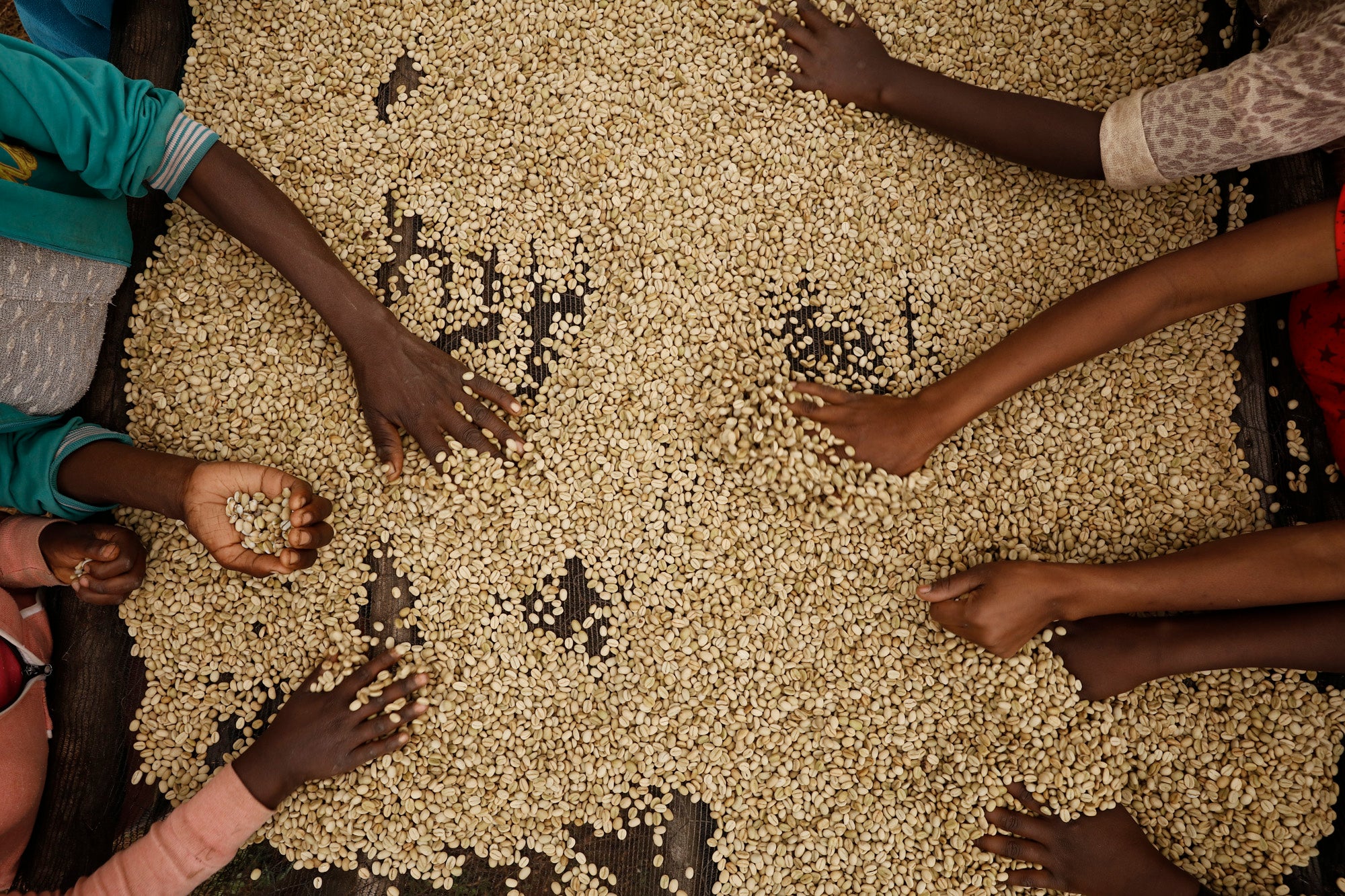Pedro-Pablo, Daniela & Pedro Rodriguez

Alasitas
Location: Copacabana, Caranavi, Bolivia
Farm size: 3 ha
Process station: Rodriguez mill
Varietals: Java, Caturra, Catuaí
Bought since: 2016
Samaichacha
Location: Copacabana, Caranavi, Bolivia
Farm size: 3 ha
Process station: Rodriguez mill
Varietals: Java, Caturra, Catuaí
Bought since: 2016
If it weren’t for the Rodriguez family, Bolivian coffee would look a lot different today. They work under the name Agricafé as exporters, and we are buying all of our Bolivian coffees through them. They also have a sustainability project ‘Sol de Manana’, where they are working with other producers, providing them with fertilizer and plants, and advising using their agronomical expertise. They also process the coffees from all of the producers we are buying from at their washing stations and dry mill. On top of all of this, they have farms of their own, including Alasitas, La Linda and Samaichacha.
The dad, Pedro Rodriguez started sourcing coffee from small coffee producers in 1986. He owns a mill, together with his talented daughter Daniela and son Pedro Pablo. They process the coffee, dry mill and exports coffee for other farmers in the Caranavi and Sud Yungas region. Without people like the Rodriguez family working in coffee in Bolivia, the future of Bolivian coffee would be at risk of disappearing, but with the steady decline of coffee production, the sustainability of their export business is in jeopardy. The family has taken on the challenge of increasing the production of coffee in Bolivia by planting their own new coffee plantations, which Alasitas is a school book example of, producing the best coffee in Bolivia if you ask us.
In the last four years, the Rodriguez family has been building a sustainability project with the producers delivering to their mills, called ‘Sol de Mañana. It is built on three mantras: economical sustainability, social understanding and environmental awareness. We are buying coffee from other producers in Bolivia, such as Carmelita, Colque and Tadassio Mamani who are receiving extra support from the Rodriguez family. They help other producers produce higher quality and larger quantities in a sustainable way.
Alasitas
In 2014, the Rodriguez family bought land in the Caranavi region to showcase their practices and educate other producers on sustainable farming, as well as increasing the overall volume at their mills. They prepared the land on 20,6 hectares and planted Red Caturra, Java and Gesha. The name of the farm is Las Alasitas, which in the Aimara native language means “buy me”.
Alasitas was the first farm Drop Coffee started buying from in Bolivia, back in 2015.
This is a very important relationship for us at Drop and one we are very proud to have. We go to their farms for a visit every year during harvest, and stay at the mill. They have also made their way up to Stockholm to visit the team at Drop. We, as friends have been growing together for many years now.
Caranavi is located 150 kilometres north of La Paz city, it is seen as the centre of Bolivian speciality coffee production. With the super-rich soil, combined with very high altitudes, for me, it is the epicentre for coffee production in Bolivia. We’re very proud to present this Bolivian coffee to you all, for the impact it will have on the livelihood of the people working for the Rodriguez family as well as the future of Bolivian speciality coffee. But don’t forget the sugary, clear taste profile.
Samaichacha
The Samaichacha is a small lot located next to the Agricafé mill, in Aguarica in Samaipata region, where the coffee is processed. As we like it so much, the whole lot of land is kept separated for us at Drop Coffee, so we can sell it to you individually.
The Rodriguez been producing coffee in Samaipata region for several, and ???? was the first-ever harvest. The lot is called Samaichacha and was one of the sweetest coffee we had and therefore the Rodriguez kindly kept it separated for us instead of blending it in with the rest of the coffee on the farm. The extreme weather and higher elevation give this coffee very different characteristics than the other Bolivian coffees that we are buying. On top of that, the coffee is de-pulped and processed without water, which is tricky to do, but when you do it well it increased the sweetness of the cup.
Generally, the Samiapata region is known for its tropical climate, nature and broad agricultural culture. There is a big difference between here and Caranavi, with the weather as well as culture, it almost feels like another country. The weather varies quite a bit, with temperatures during the day being around 25-30 degrees, and around 8 degrees in the night, which is considered very cold. This causes the cherries to take a longer time to ripen, and their mucilage becomes very thick, and the skin of the cherry (the cascara) is even sweeter.
In Samaipata there is a lot of magnesium in the soil, which is great for growing coffee, it means that the coffee plants are less susceptible to Roja, or other fungi. All of these things contribute to a very unique taste profile. In Samiapata, big water reservoirs have been dug out in the land to collect water.
Learn More
- Choosing a selection results in a full page refresh.
- Press the space key then arrow keys to make a selection.
